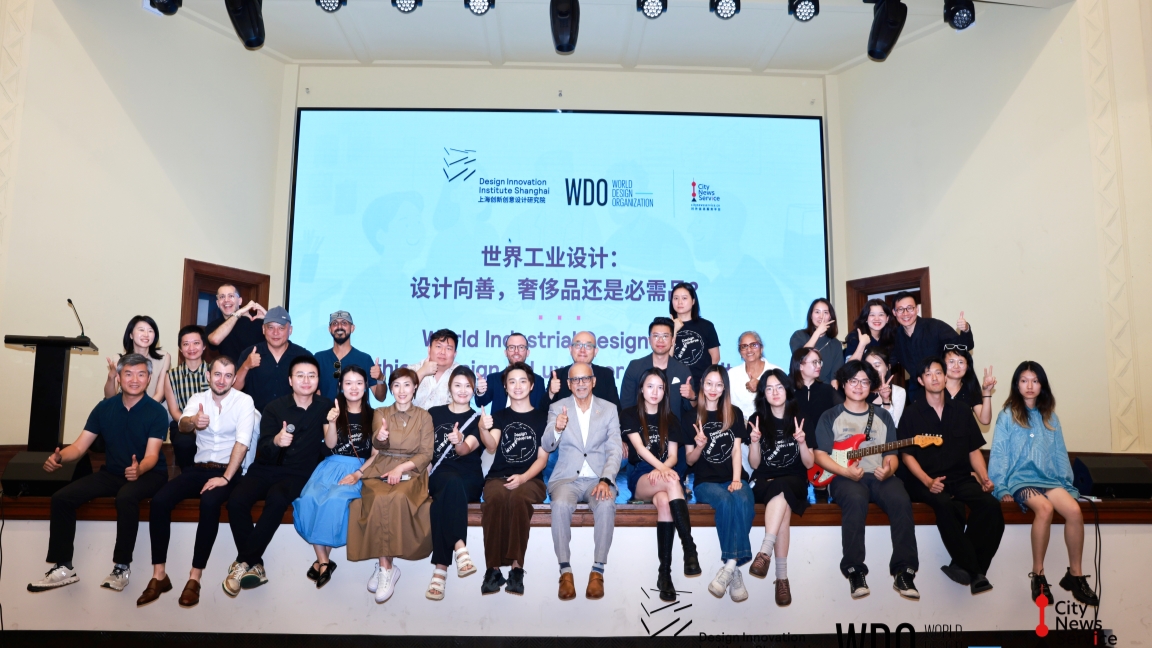
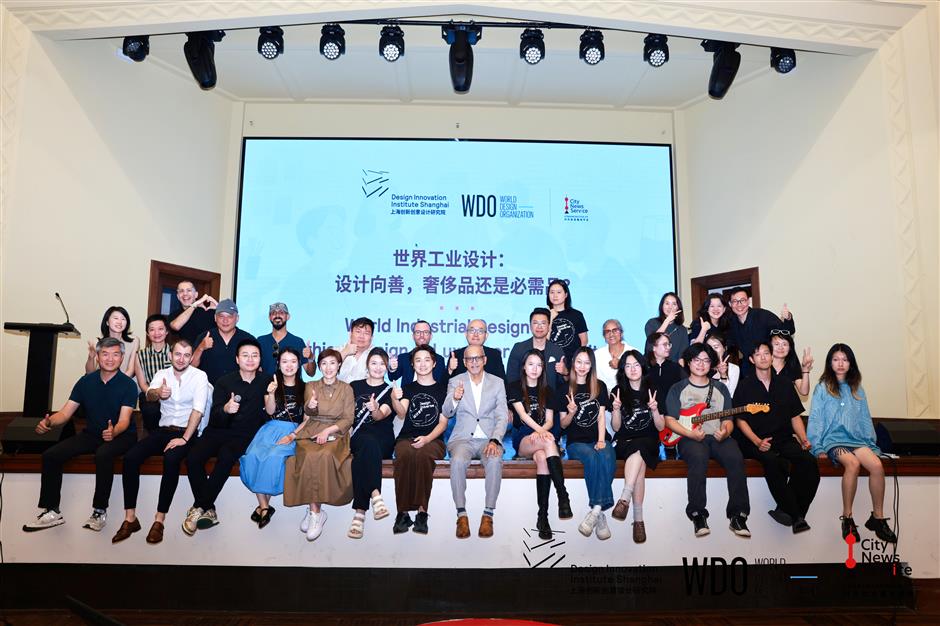
Design leaders and industry professionals gather in Shanghai for the sub-forum of the 2025 World Industrial Design Day, themed "Ethical Design: A Luxury or a Necessity?."
Design leaders from around the world gathered in Shanghai last Friday for the sub-forum of the 2025 World Industrial Design Day, themed "Ethical Design: A Luxury or a Necessity?."
Organized by the Design Innovation Institute Shanghai (DIIS) with support from the World Design Organization (WDO), the forum spotlighted the urgent need for responsible and sustainability-driven design in a rapidly changing world.
Against the backdrop of accelerating global challenges, the event served as a platform for cross-disciplinary dialogue on how ethical principles must increasingly guide the way we design products, systems, and experiences for a better future.
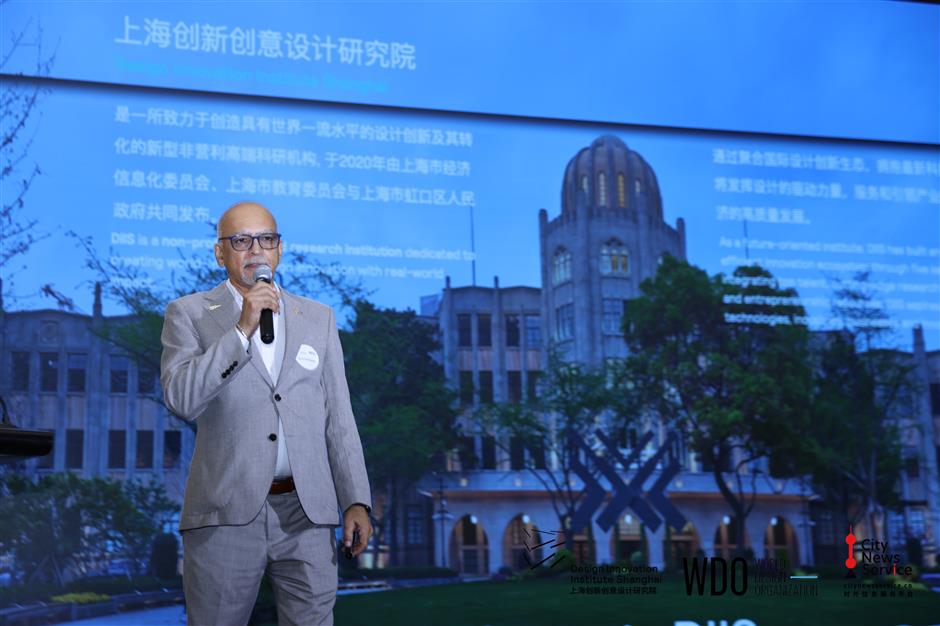
Srini Srinivasan, former WDO president and current chief operating officer of DIIS, shares his perspective on the evolving role of ethical design.
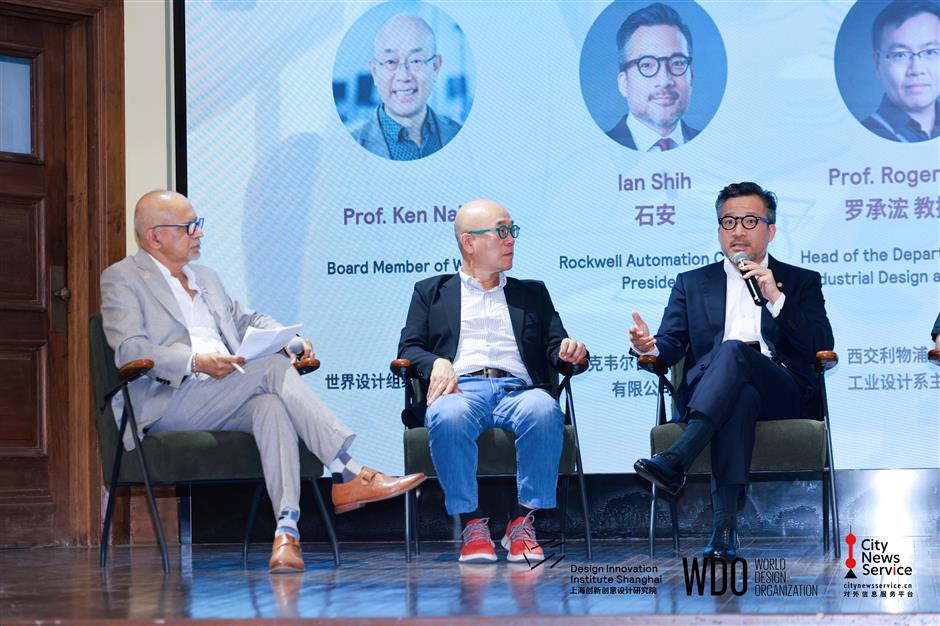
Srini Srinivasan invites internationally-renowned scholars and industry leaders to join his panel discussing "ethical design" from educational and industry perspectives.
Srini Srinivasan, former WDO president and current chief operating officer of DIIS, explained: "Ethical design is about designing with morality – with a conscience. It means being aware of the impact your work has on people, society and the planet – and choosing to do what's right, even when it's not the most profitable option."
Srinivasan himself has turned down projects that he believed could cause harm, such as creating packaging for recreational drugs. "It maybe legal or lucrative, but if it's not good for people, I won't do it. That's where ethics begin," he added.
Through the forum, which he initiated, internationally-renowned scholars, industry leaders and senior executives from multinational corporations, gathered to share their perspectives on the evolving role of ethical design.
"Industry leaders must be transparent. Ethical design starts with openness – sharing how and why decisions are made," Srinivasan said.
At DIIS, Srinivasan focuses on constantly educating people through storytelling and design-thinking masterclasses. "I want to influence young minds – design students – to adopt ethical thinking as a core principle. Every design school or program should integrate ethical design as a sub-module. When students create something with ethical intent early in their journey, it stays with them for life."
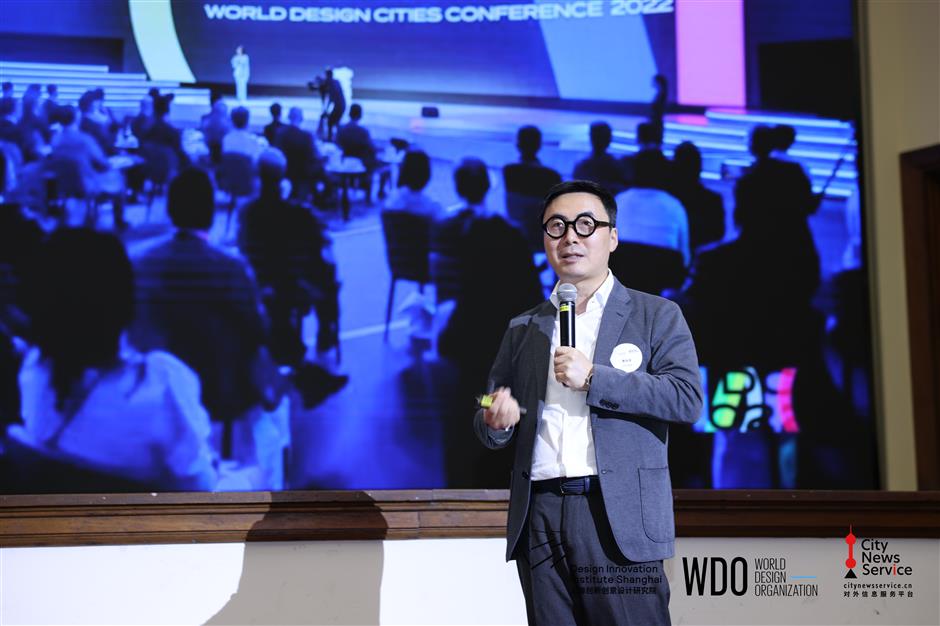
Professor Lou Yongqi delivers a keynote emphasizing that design has now become the engine of new productive force and innovation.
Professor Lou Yongqi, president of Shanghai University of Engineering Science (SUES), delivered a keynote emphasizing that design has now become the engine of new productive force and innovation – and therefore, direction matters.
"Once design becomes the engine of innovation, its direction becomes critical. And direction is defined by ethics," he noted.
Drawing on both historical lessons and global shifts, Lou warned that design without ethical grounding risks becoming a tool for manipulation or harmful consumerism. "Design always reflects the values behind it. What's considered 'ethical' depends on the situation and the dominant values of the time."
The World Design Cities Shanghai Manifesto 2024 shifts design's focus toward a "web of life" framework by advocating design in harmony with nature and humanity, which is closely aligned with Lou's design-led economic vision – "Repairizing the Planet Economy." It's a future-forward model where design plays a fundamental role in reversing environmental damage.
Rather than relying on isolated efforts by environmentalists and artists, he argued, this work must be scaled to match the magnitude of past harm. "If we damaged the Earth with large-scale, high-speed, industrial tools, we must repair it with tools just as powerful – only now directed by ethics and ecological intelligence."
Lou sees China, and Shanghai in particular, as uniquely positioned to lead this movement thanks to its institutional capacity, complete industrial ecosystem, and growing design consciousness.
Academically, the traditional education system was imported from the West – focused on cultivating individual creative talents. "But we're no longer focused on training eccentric 'genius designers' but to empower society as a whole to become more creative. That's why many of our students now work in communities, bringing design into neighborhoods and making communities a vital part of the design education environment. That's why I often say, Shanghai is the greatest design university. Everybody designs."
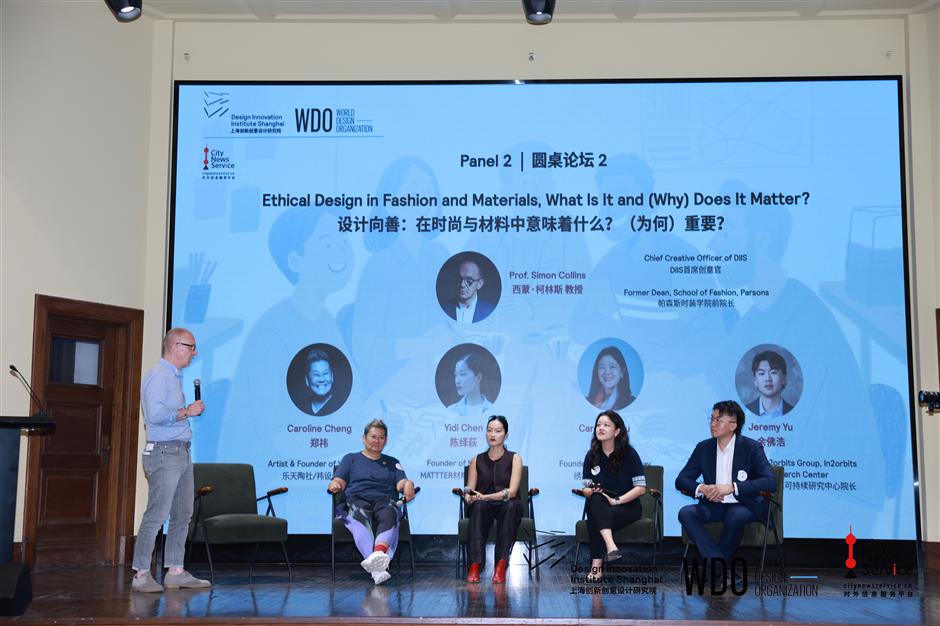
Simon Collins, an influential fashion educator and the chief creative officer at DIIS, brings together a group of panelists discussing "Ethical design in fashion and materials, What is it and (Why) does it matter?."
Simon Collins, an influential fashion educator and the chief creative officer at DIIS, also seeks to demystify design and empower people to see themselves as everyday designers. "If you choose your lunch or your clothes, you've already made design decisions. Design isn't confined to studios – everyone is a designer," he said.
Collins defines ethical design as creating net positive impact – products or experiences that are enjoyable, useful, successful, and do no harm – across their entire life cycle.
Now focused largely on communication, education and consulting, Collins uses his platforms to advocate for sustainability as an everyday mindset. He encourages people to repair, reuse and swap instead of constantly consuming – arguing that real change comes not from obligation, but from making ethical behavior relevant and easy.
"I love the fact Xianyu (China's online marketplace for second-hand goods) is such a massively successful platform because it means people are buying second-hand things. Let's do more of that. For every new thing you buy, try buying one second-hand. That small shift could change everything."
Rather than framing sustainability as a moral obligation, Collins argues it must be practical and meaningful to everyday life. "If you want people to care about sustainability, make it relevant. If it's not practical or meaningful to someone's life, it won't be adopted – no matter how sustainable it is," he said.
By fostering awareness at the personal level with action at the institutional level, Collins envisions a world where ethical design is not a luxury, but a lived, evolving habit.

